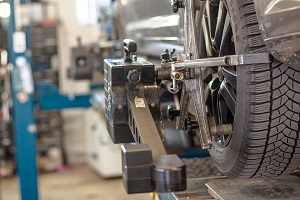
Whether you're a car enthusiast or just someone who wants to understand what your mechanic is saying, it's easy to feel confused by the jargon used in auto repair. Words like “grease monkey,†“kickdown,†and “oversquare†can sound like they’re spoken in another language. But knowing these terms can help you communicate better with your mechanic and make informed decisions about your vehicle’s maintenance.
Here are some common auto repair terms that every driver should know:
- Aftermarket Parts: These are parts made by third-party manufacturers, not the original equipment manufacturer (OEM). High-quality aftermarket parts can be just as reliable as OEM parts and often come at a lower cost.
- Hesitation: This refers to a delay or lack of response when you press the accelerator. It can be caused by issues like a faulty fuel system or ignition problems.
- Pull: If your car pulls to one side while driving straight, it could indicate a need for wheel alignment. This is usually due to uneven tire wear or misaligned suspension components.
- OEM Parts: Original Equipment Manufacturer parts are made by the same company that built your vehicle. These parts are designed specifically for your car and are typically more expensive than aftermarket alternatives.
- Oversquare Engine: An engine where the cylinder bore is larger than the piston stroke. This design can lead to higher RPMs and improved performance.
- Kickdown: This term refers to the automatic transmission downshifting when you push the gas pedal further, providing more power for acceleration.
- Grease Monkey: A slang term for a mechanic, often used in a friendly or humorous way.
- ASE Certification: The National Institute for Automotive Service Excellence provides certifications for automotive technicians, ensuring they meet industry standards.
- LOF: Short for "Lube, Oil, Filter," this is a basic service that includes an oil change and filter replacement.
- TPMS: Tire Pressure Monitoring System – alerts you when your tire pressure is too low, helping prevent blowouts and improve fuel efficiency.
- Play: Excessive movement in a part, especially in the suspension or steering system, can indicate wear or damage. For example, play in the steering wheel may suggest worn components.
Understanding these terms can empower you to ask the right questions and make smarter choices when it comes to your car’s care. Next time you visit your mechanic, you’ll be better equipped to understand what’s going on under the hood.
Book your auto repair appointment online today and stay in control of your vehicle’s health!
Calcium Silicate
Calcium Silicate,Silico-Calcium Powder,6030 Silicon Calcium Alloy,5528 Silicon Calcium Alloy
Anyang Xinhai Metallurgical Refractory Co., Ltd , https://www.xinhaialloy.com
